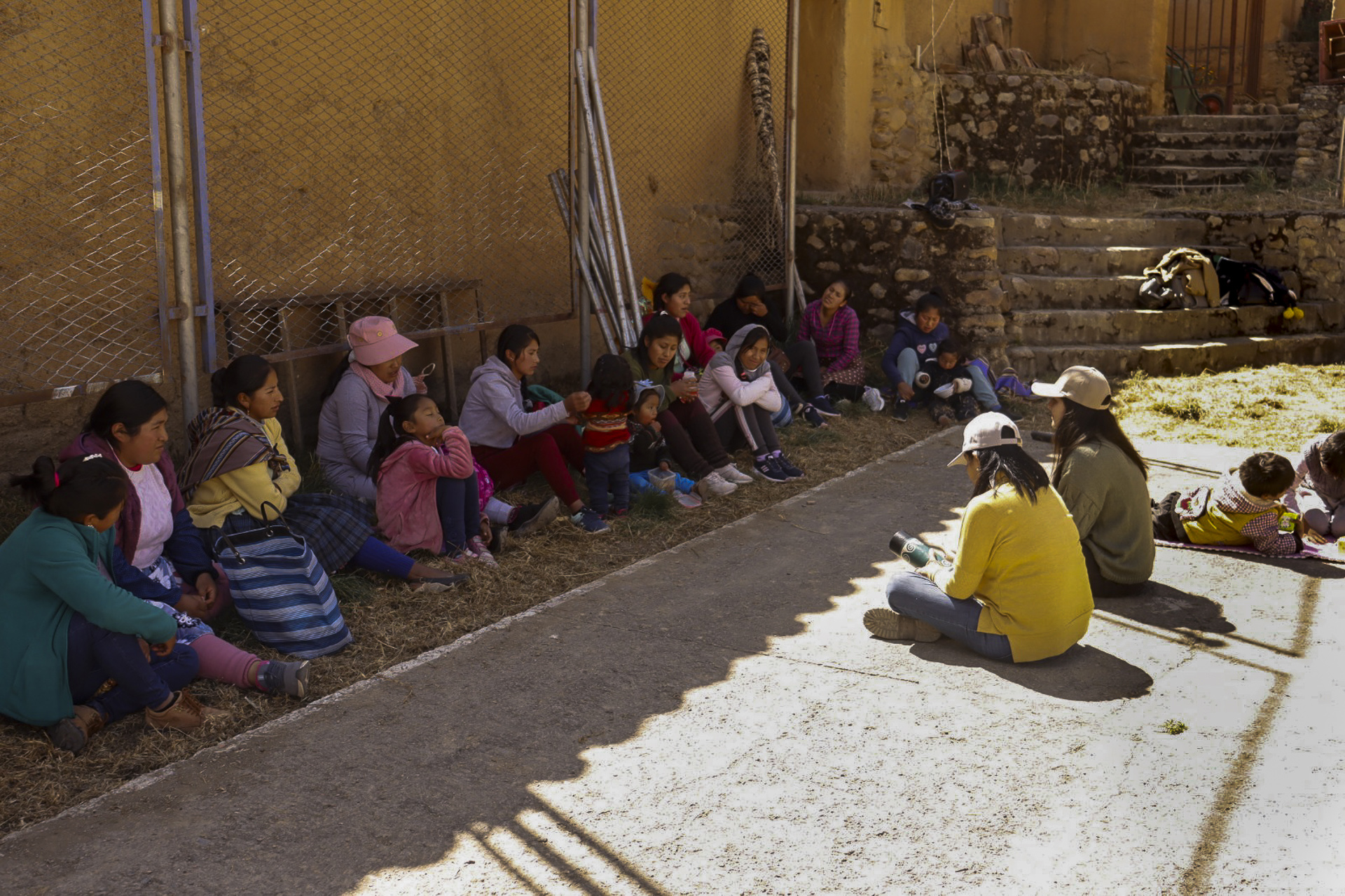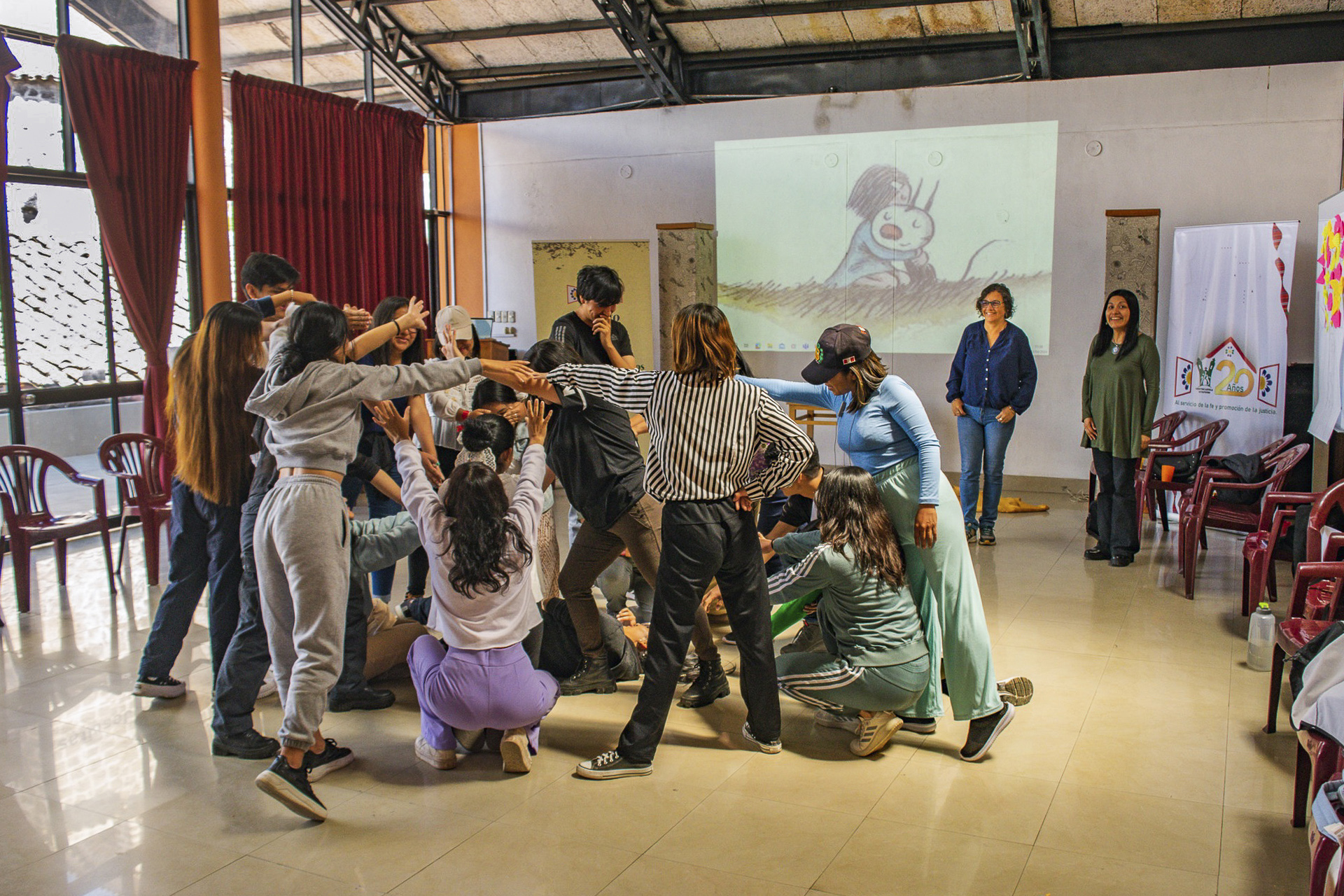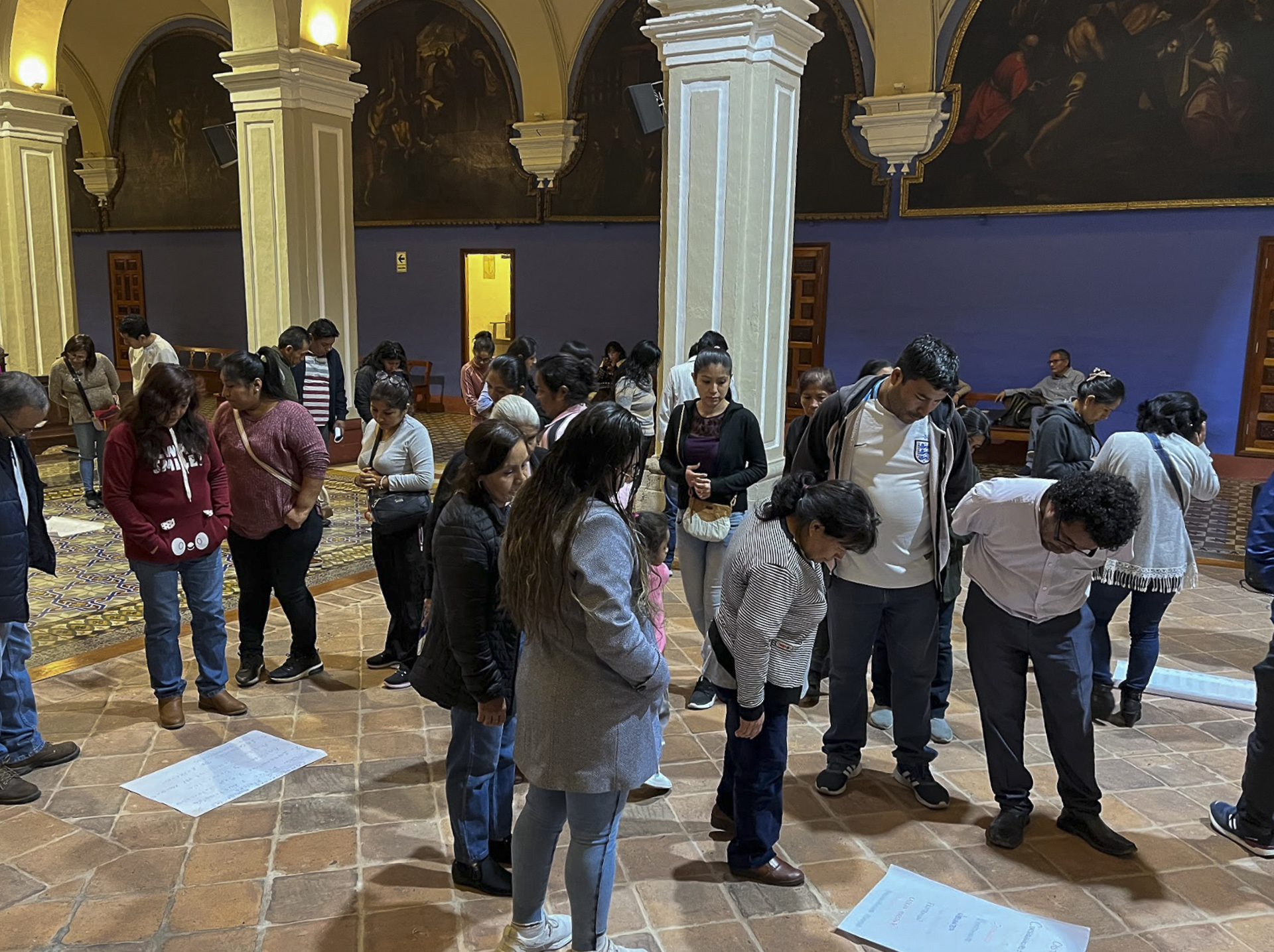
Peruvian Alumna Roots out Antiquated Beliefs About Violence as a Form of Discipline, Aids Abused Children & Vulnerable Adults
Dafne Zapata, IADC alumna of the 2021 Spanish Diploma in Safeguarding program, has dedicated her life to combatting violence towards children, adolescents, and vulnerable people in her home country of Peru. Her main goal: To confront the cultural normalization of violence and teach others how to prevent abuse, pushing for deep-rooted change in the Peruvian culture. According to the Peruvian National Institue of Statistics and Informatics, more than 60% of the country’s children and 78% of its adolescents have suffered some type of violence.

With two degrees in psychology, Zapata’s interest in the human mind has evolved into a deep attentiveness to abuse prevention, given these staggering statistics. Her master’s thesis focused on abuse prevention and intervention specific to children and adolescents, which ultimately led her to the IADC in 2021 for the first Spanish-language Diploma in Safeguarding program. She shares that her formation at the IADC provided her “the possibility to better understand the processes of violence, and gave [her] tools that allow [her] to contribute to the eradication of violence toward children and adolescents” in Peru. Having worked as a psychologist in state-run educational centers, she was confronted with the reality of violence and vulnerability of young people. She shares, very candidly: “In the schools where I’ve worked, I’ve learned how children and adolescents were physically punished as a means of discipline, how they suffered the negligence of parents who abused alcohol or drugs, and how they lived in households where violence against them and their mothers was a daily occurrence.” Dafne's work has, from the very start, placed these vulnerable people at the center of all she aims to do.

Today, Dafne Zapata serves as the Director of the Institute for the Protection of Minors and Vulnerable Persons at the Antonio Ruiz de Montoya University in Lima, Peru. This role comes with the responsibilities of designing and carrying out information sessions, courses, and workshops for different institutions, religious congregations, and for people working with children and adolescents in vulnerable situations. These educational experiences teach adults how to identify warning signs of abuse and risk factors. Zapata described a powerful moment during a workshop of more than 80 parents of children between the ages of 8 and 10: They were concerned that violence and harsh parenting is encouraged and seen as an effective way to discipline children. She, on the other hand, explained the importance of positive parenting and how to raise their children without the use of violence. Parents openly expressed their fears and concerns with one another, and they agreed that a positive approach to discipline is best for their children. Dafne feels that creating spaces to have these types of difficult conversations “gives [her] hope for a better future for [her] country.”
Beyond teaching, Dafne does vital work in victim accompaniment, using art therapy to help children, teenagers, and vulnernable adults to cope with the abuse they have experienced. In the long-term, she is hopeful that the workshops and interventions will “result in an improvement in the quality of life and well-being of children and adolescents” as well as have a positive impact on the prevention of sexual and physical violence throughout Peru.
“The training provided by the IADC enables students to be agents of change in every graduate’s own culture and environment.” - Dafne Zapata
Dafne also presented her talk “A Cultural Approach to Disability” at the 2024 International Safeguarding Conference. You can watch her presentation, featured at the bottom of this page.



